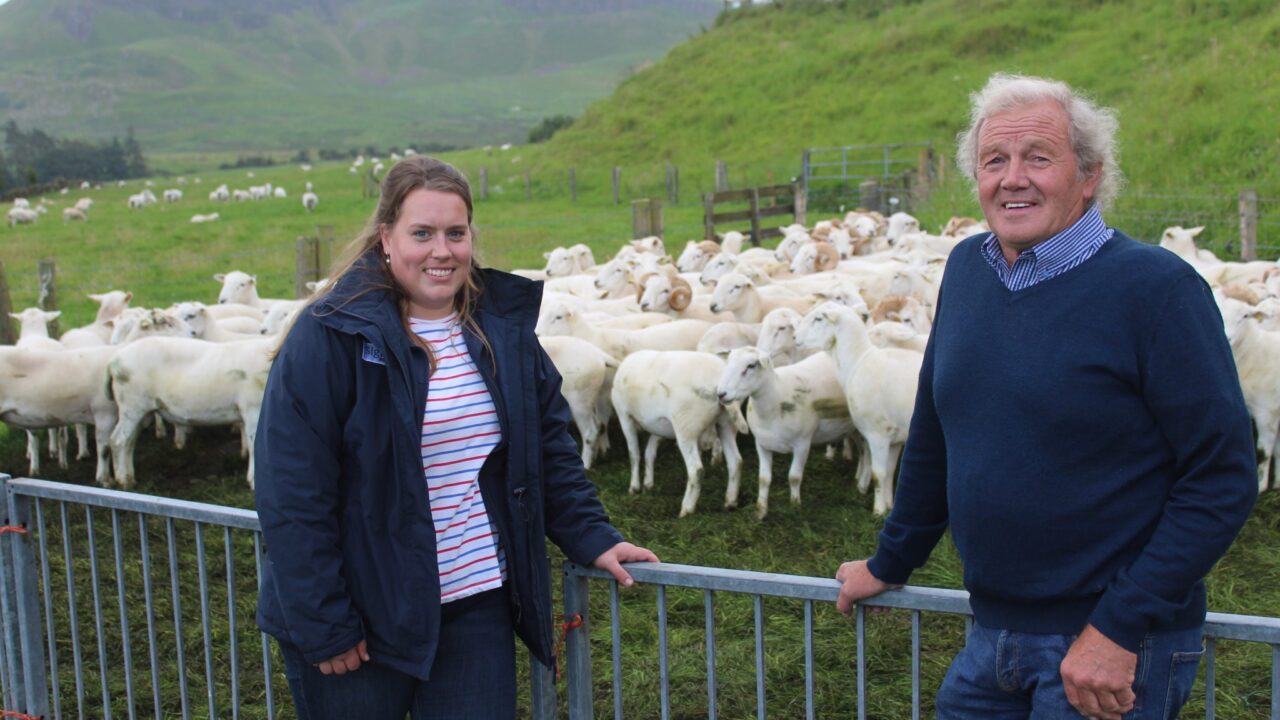Genomic information can have a variety of potential uses for sheep breeders.
Senior Signet Breeding specialist, Laura Eyles, has highlighted the potential of genomics within the sheep sector.
She spoke at a recent EasyCare open evening, hosted by Co. Antrim breeder, Campbell Tweed.
Eyles said: “We are at the dawn of a genomic age, moving from genetic predictions that are based solely on pedigree and performance data to those that now include genomic data, information about the variation in an animal’s DNA and the individual genes it possesses.
The specialist explained that genomic information has a variety of potential uses from sire/dam verification.
“This can be important for pedigree societies,” she said.
“Even flocks looking to move away from single sire mating can use DNA to identify parents – this is quite common in our hill breeding programmes.
“Genotyping also reveals the presence of major genes such as those related to scrapie resistance, myostatin-linked muscle growth, or major fertility genes.”
According to the Signet representative, genomic data adds massively to our knowledge of traits that are only expressed in one sex (like milk), expressed later in life (like longevity), and are hard/expensive to measure (like methane or meat-eating quality).

Eyles further explained: “Genomics can also be used to identify sheep suited to specific breeding programmes at a younger age.”
Currently, Signet operates genomic evaluation systems linked to seven hill breeds and three terminal sire breeds.
“Within our maternal breeding programmes, we are currently working with various research projects, levy funders and individual breeders to collate genomic data, with a view to move several of the larger maternal breeds to genomic breeding values in the next couple of years.
“Our genomic evaluation has been extended to Northern Ireland, where we are working in association with AgriSearch to build on our ever growing bank of genotypes.
“Genomic assessment can deliver real and positive change within the sheep sector. But making this happen will require high levels of collaboration involving individual farmers and all the stakeholders involved,” Eyles said.
Campbell Tweed’s Ballycoose flock is home to a selection of the most progressive EasyCare bloodlines available in the UK and Ireland.

Performance recording all the sheep born on the Tweed farm over many years through both the Signet and Sheep Ireland programmes has been at the heart of this ongoing success story.
According to Campbell: “EasyCare sheep are synonymous with wool shedding. But this is only part of the story.
“At the very heart of the Ballycoose development programme is an absolute commitment to breed ewes that perform well, making best use of grass, maintaining the highest levels of animal health and lambing each year outdoors with the absolute minimum level of human intervention.
“And it is the results generated from the flock recording programmes that have allowed to make this happen.”
Meanwhile, EasyCare numbers continue to grow across the island of Ireland.
Campbell said: “This reflects a growing recognition that the sheep allow flock owners to make best use of their time while also maintaining exceptionally high levels of performance.”

